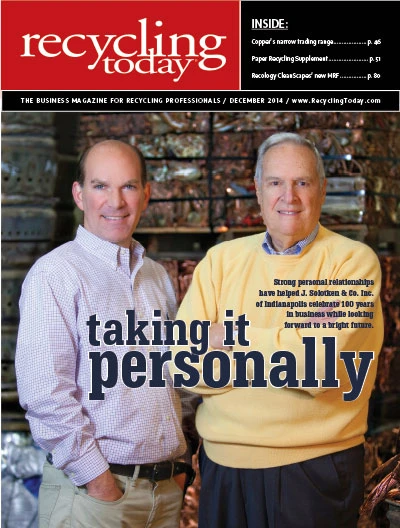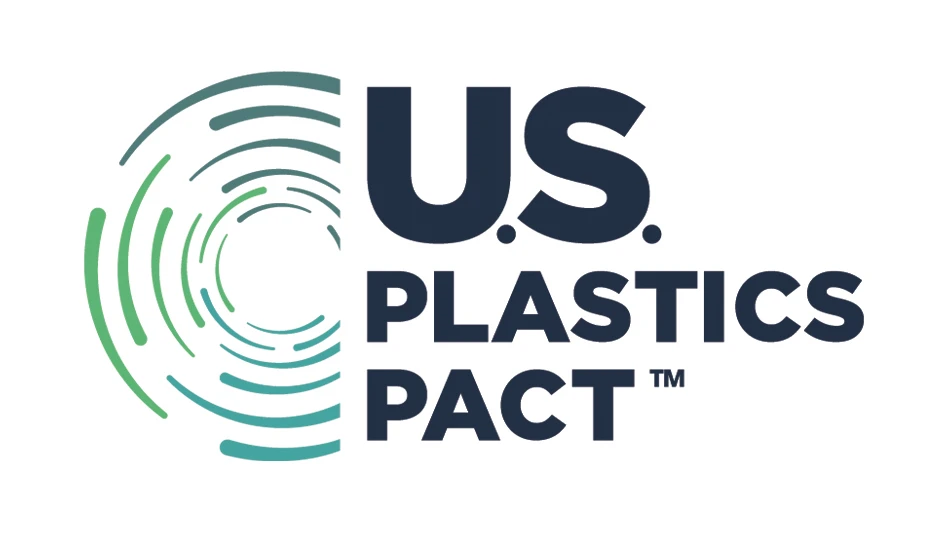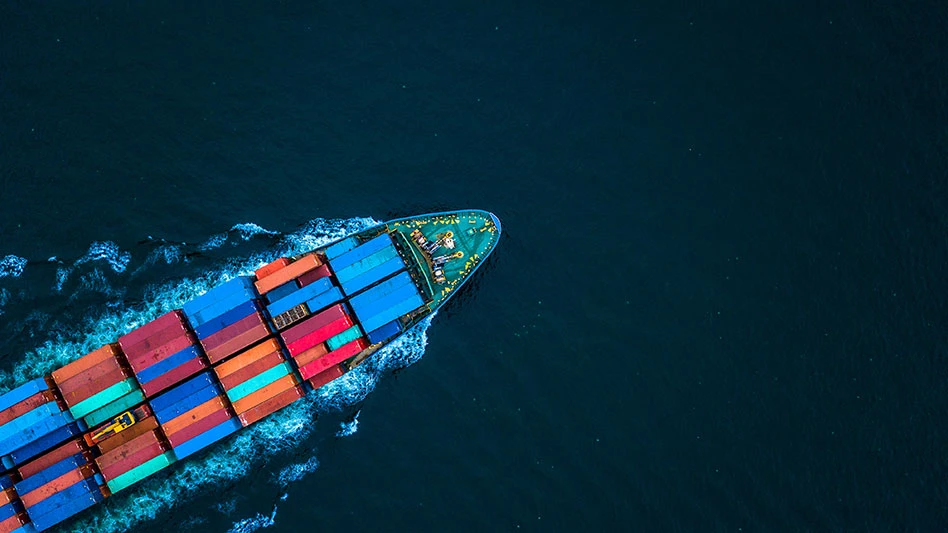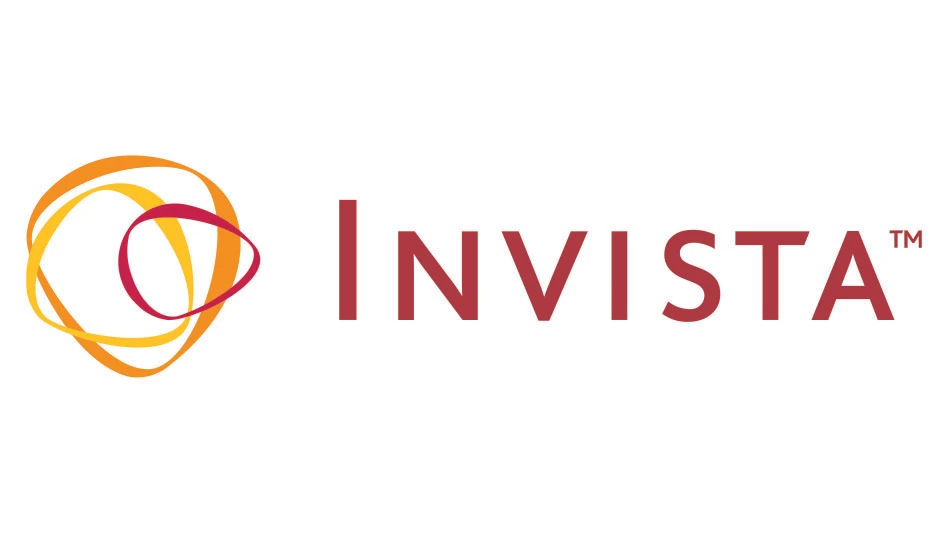 For the past 15 years, the People’s Republic of China has imported enormous amounts of scrap materials from the European Union, North America and any other part of the world where scrap can be placed into an ocean-going container.
For the past 15 years, the People’s Republic of China has imported enormous amounts of scrap materials from the European Union, North America and any other part of the world where scrap can be placed into an ocean-going container.
In 2013, with the advent of Operation Green Fence, the expectations regarding quality for shipments into China increased considerably, though Green Fence was far from the first quality improvement step taken by China’s government agencies.
For several years, China’s Administration of Quality Supervision, Inspection and Quarantine (AQSIQ) has required shippers to be licensed before they send containers full of scrap materials to a Chinese port.
The AQSIQ licensing and renewal processes are considered complicated and thorough by many exporters, who also have learned that delays and rejections when seeking licensing can be a genuine setback.
Simon Du founded Beijing-based K&C International (www.aqsiqservice.com) specifically to help overseas recyclers overcome the linguistic and procedural barriers that can make the AQSIQ application process difficult.
In the following Q&A with Recycling Today Editor Brian Taylor, Simon comments on some of the difficulties inherent in the licensing process as well as some of the solutions a Chinese-speaking consultancy can offer.
Recycling Today (RT): What types of scrap exporters benefit from having an AQSIQ license?
Simon Du (SD): Scrap exporters exporting renewable resources like scrap paper, scrap plastics, smelting slag, scrap metal, scrap wire and cables, scrap hardware appliances, old motors and compressed pieces of scrap automobiles and so on to China can all benefit from having an AQSIQ license. This is mainly reflected in two aspects: First, they will be qualified for exporting to China; second, they can directly export the goods to a Chinese port without the limitation on the quantity of the goods.
It should be noted that not all waste raw materials can be exported to China. Regarding the import of waste and scrap raw materials, the Chinese government has divided them into three categories: 1) Catalogue of Automatic-Licensing Import Solid Wastes that Can Be Used as Raw Materials in China; 2) Catalogue of Restricted Import Solid Wastes that Can Be Used as Raw Materials in China; and 3) Catalogue of Solid Wastes Forbidden to Import in China, of which only the first two categories can be exported to China. Currently, electronic scrap is prohibited to be imported into China.
RT: What are considered some of the difficult steps to obtaining a license?
SD: There are several difficulties in obtaining an AQSIQ license. First, due to the language barrier, scrap exporters may not be able to directly search for or read China’s current policies or policy updates. We’ve encountered more than once foreign suppliers who have prepared documents for the AQSIQ license application following the old abolished laws. It is a very realistic and serious problem.
Second, the enterprises applying for an AQSIQ license must first obtain an ISO9001 or RIOS license.
Third, foreign suppliers usually can’t fully understand the government’s specific requirements on different documents, so they often can’t prepare properly or fail to meet the requirements. In addition, as they are not familiar with the Chinese regulatory framework, the environmental control standards for different goods and the rules of the game as to how AQSIQ, CCIC (China Certification & Inspection Group), CIQ (China Inspection and Quarantine Services), MEPC (Marine Environmental Protection Committee) and Customs do their work and cooperate with each other, the enterprises’ operation systems and goods inspection standards cannot meet the requirements of those Chinese agencies.
Fourth, during the official process of confirming the ISO9001 license and operation system with ISO institutes, many problems emerge, which often cause the application to grind to a halt.
Fifth, even if the AQSIQ license is obtained, it still could be a difficult step to receive the original AQSIQ license and USB (universal serial bus) key, as a few countries do not allow such devices to enter their countries. As well, some enterprises do not know how to use the USB key after receiving it. These are all very practical problems.
Last but not least, Chinese officials will pay a random inspection visit to the enterprises after they obtain an AQSIQ license, which also can lead to potential problems for foreign suppliers.
RT: How can working with a consultant such as K&C International benefit a recycling company?
SD: K&C International Consulting has a very rich depth of experience and is an authoritative AQSIQ application consulting agency that understands China. We can provide European and American recycling companies with correct information on laws and regulations, detailed requirements on application documents and procedures and help them avoid detours in the AQSIQ license application process. Meanwhile, K&C International guarantees all clients will obtain an AQSIQ license and all customers will receive convenient, fast and guaranteed services.
RT: What are examples of why a company would seek changes to its AQSIQ license?
SD: When a company changes its company name, legal representative, registered address or office address, the company needs to submit an application regarding such changes to the AQSIQ office. This is because during the valid time the company is responsible for keeping all information on the license correct and in effect. It should be noted that the company name and legal representative cannot be both changed on one license. If they are both changed, you will need to apply for a new license.
To add a new item to the scope of business also is considered as a change. For example, if there is only plastic scrap listed on the AQSIQ license and the company wants to add scrap metal, a change application will be required.
RT: How can K&C International help a recycling company maintain its AQSIQ license during the three-year license period?
SD: As we’ve mentioned, in order to maintain an AQSIQ license within its valid time, foreign suppliers need to keep all information on the AQSIQ license correct and effective. No matter which kind of changes they are coming across, K&C International can assist them with all these changes. As well, if a company is going through an on-site assessment by Chinese officials, we will provide professional instruction and training, prepare and perfect relevant documents, arrange the whole contingency procedure and assist the company to pass the assessment.
When a company is ordered to rectify itself due to the return of cargoes, we will assist the company in the rectification and remove the threat to its AQSIQ license caused by the return of cargoes.
And if a supplier is attacked or reported maliciously by its competitor, we will help the supplier clear the air.
We will assist companies applying for the renewal of an AQSIQ license to make it always valid.
The four aspects above are important work K&C International can perform for companies.
RT: Does K&C International offer guidance during the renewal process as well?
SD: K&C International offers renewal application agency services and renewal guidance. Even when suppliers have suffered returned cargoes or have no delivery record in three years—or in other special situations—if they entrust us to renew the AQSIQ license, we promise we will complete it successfully. We also want to remind all suppliers if their AQSIQ license is only valid for a few more months, they need to begin the renewal process as soon as possible. It is best if the renewal process is started with time to spare.
RT: What are some mistakes exporters make during the renewal process?
SD: Exporters often do not know how to submit the renewal application electronically in the system; they either provide nonconforming notarized documents and plan views or they lack relevant documents on radioactivity detectors. If they miss the notice for corrections sent by the official or fail to submit the required materials on time, this may result in failure of the renewal.
RT: Have there been important changes you can describe regarding recycling-related AQSIQ licensing in 2014 or that will take effect in 2015?
SD: In March of 2014, AQSIQ bureau completed its renewal for about 1,700 companies. Around 300 companies were washed out in this renewal. Then, AQSIQ came out with a serial of new restrictions: renewal application will only be accepted within three to six months ahead of the expiration date; and applications for changing information on an AQSIQ license and application for renewal can’t be submitted at one time—always complete the change first, then apply for the renewal.
At present, General Administration of Customs is working on a new policy that is about demanding foreign suppliers and Chinese manufacturers to obtain a related AQSIQ license for waste blank plastic even after they’ve been made into flakes, particles or powder. General Administration of Customs has already put out an announcement for this policy. Considering most companies will need the transition time, they haven’t put it into practice now, but we think it won’t take a long time to be enforced.
As the Chinese government is paying more and more attention to environmental protection, we think our government will not choose to issue AQSIQ licenses without limitations. Instead, the government will probably enact strict controls on the total quantity of licenses. Therefore, it is vitally important for all suppliers to keep their AQSIQ licenses effective.
Simon Du of China-based K&C International, can be reached at simon@aqsiqservice.com or through his company’s website at www.aqsiqservice.com.

Explore the December 2014 Issue
Check out more from this issue and find your next story to read.
Latest from Recycling Today
- NRC seeks speakers for October event
- LME identifies Hong Kong warehouses
- Greenville, Mississippi, launches aluminum can recycling program
- Cotton Lives On kicks off 2025 recycling activities
- Georgia-Pacific names president of corrugated business
- Sev.en Global Investments completes acquisitions of Celsa Steel UK, Celsa Nordic
- Wisconsin Aluminum Foundry is a finalist for US manufacturing leadership award
- MetalX announces leadership appointments





